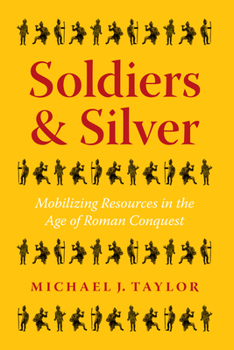Soldiers and Silver: Mobilizing Resources in the Age of Roman Conquest
By the middle of the second century BCE, after nearly one hundred years of warfare, Rome had exerted its control over the entire Mediterranean world, forcing the other great powers of the region--Carthage, Macedonia, Egypt, and the Seleucid empire--to submit militarily and financially. But how, despite its relative poverty and its frequent numerical disadvantage in decisive battles, did Rome prevail? Michael J. Taylor explains this surprising outcome by examining the role that manpower and finances played, providing a comparative study that quantifies the military mobilizations and tax revenues for all five powers. Though Rome was the poorest state, it enjoyed the largest military mobilization, drawing from a pool of citizens, colonists, and allies, while its wealthiest adversaries failed to translate revenues into large or successful armies. Taylor concludes that state-level extraction strategies were decisive in the warfare of the period, as states with high conscription and low taxation raised larger, more successful armies than those that primarily sought to maximize taxation. Comprehensive and detailed, Soldiers and Silver offers a new and sophisticated perspective on the political dynamics and economies of these ancient Mediterranean empires.
Format:Hardcover
Language:English
ISBN:1477321683
ISBN13:9781477321683
Release Date:December 2020
Publisher:University of Texas Press
Length:256 Pages
Weight:1.10 lbs.
Dimensions:1.1" x 9.1" x 6.3"
Related Subjects
HistoryCustomer Reviews
0 rating





